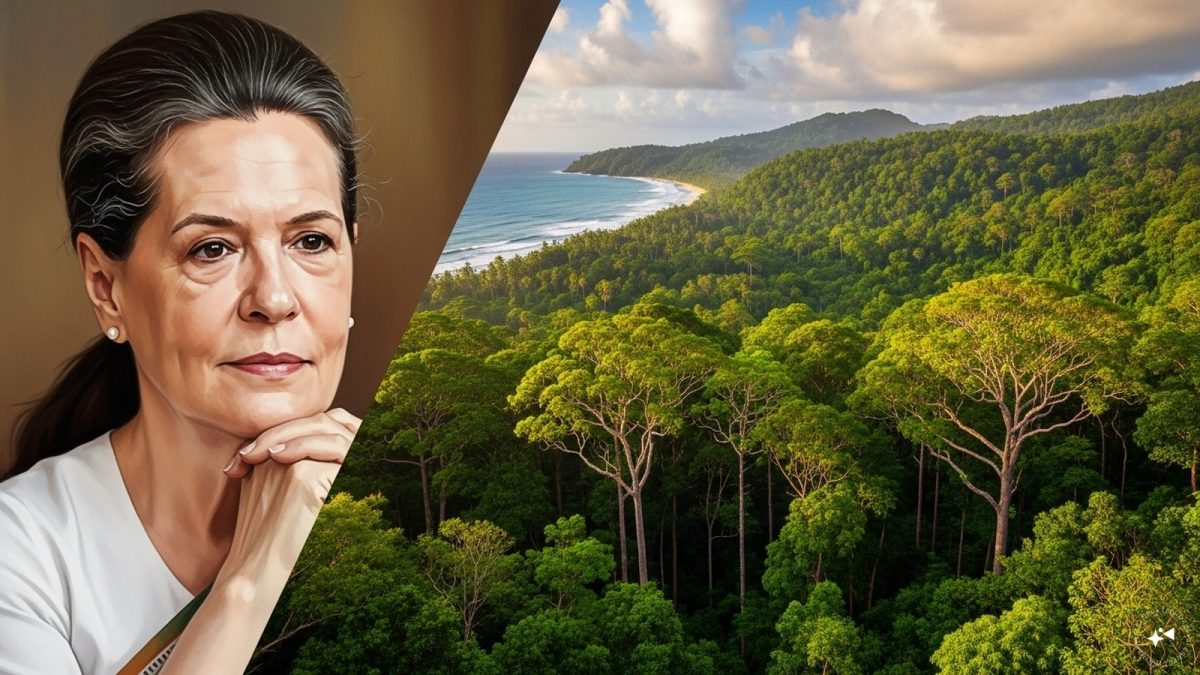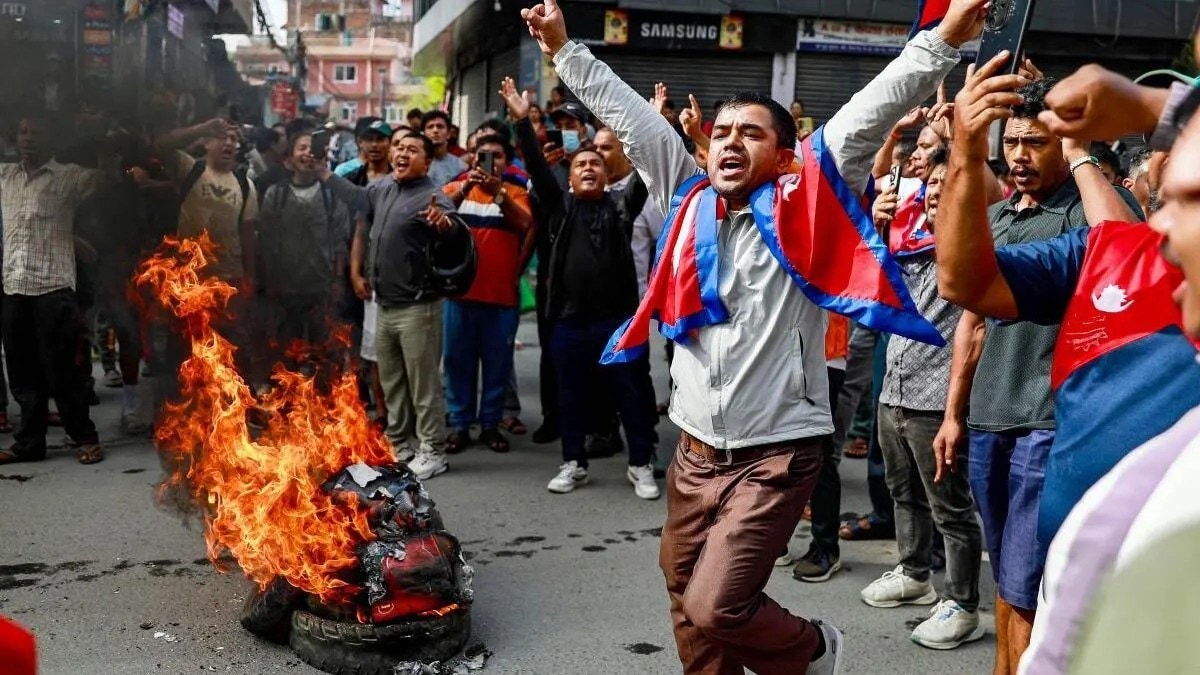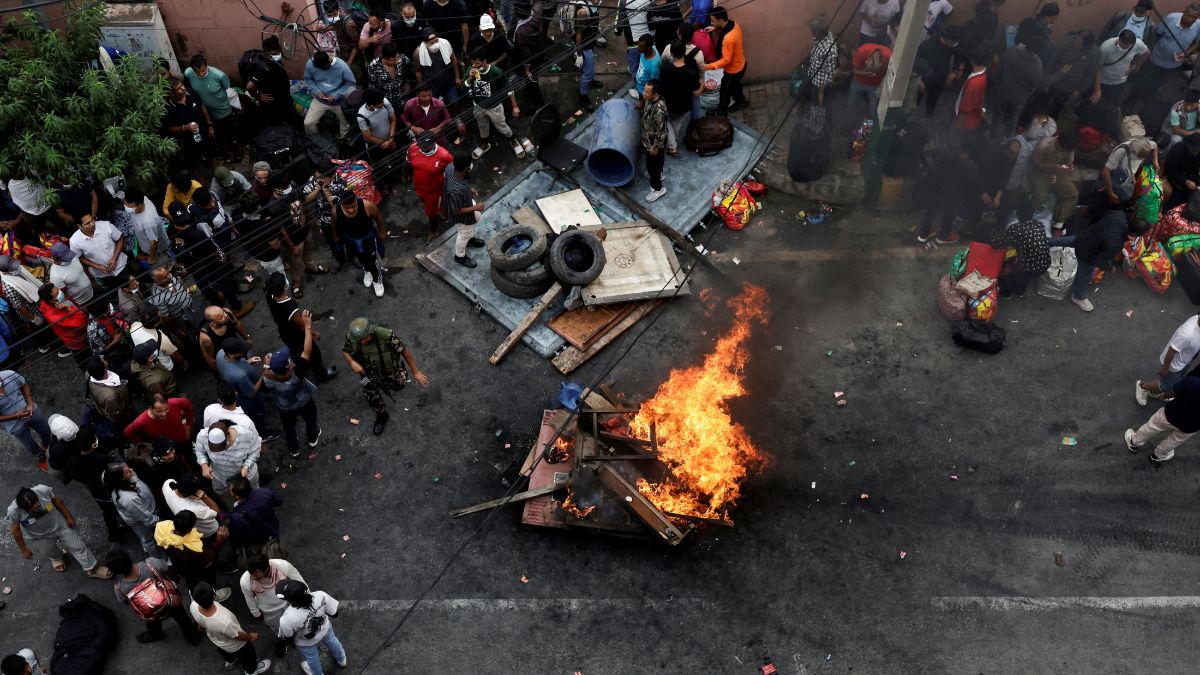Congress leader and Rajya Sabha MP Sonia Gandhi rarely writes signed newspaper op-eds. On key issues of national interest—Operation Sindoor against Pakistan, US President Donald Trump’s 50 per cent tariffs on Indian exports, and the evolving India-China relationship—Gandhi has been silent.
What then prompted her to write an op-ed on September 8 in The Hindu on the Great Nicobar Project?
Since the project was mooted in 2021, an orchestrated campaign has been waged against it by a group of NGOs, environmentalists and activists. The campaign aims to stop the project, citing irreversible ecological damage to the Nicobar Island’s delicate biodiversity and the displacement of its two tribal communities—the Nicobarese and the Shompens (whose population is around 200).
The Andaman and Nicobar Islands have long been neglected as strategic assets by successive Indian governments.
The islands give India unprecedented access to one of the world’s busiest seaborne trade routes between the Indian Ocean and the Indo-Pacific. This unrivalled asset has lain unused by India’s strategic establishment for over 70 years.
The Great Nicobar Project could be a geopolitical game-changer. It worries China and its strong lobbies in India. Admiral Raja Menon (retd), who has commanded seven ships in his storied career, explains why:
“In a bold, imaginative and strategic move, the government of India has quietly begun to build a holistic naval base on Great Nicobar Island, which stands squarely overlooking the entrance to the Malacca Strait and is barely 90 miles from the tip of Indonesia. This step, in terms of chess terminology, is like moving the queen out into the open to give the opposing king a direct check. For instance, it immediately threatens to bring the shutter down on China’s extended neck stretching far out into the Indian Ocean, far westward to Djibouti and Gwadar. A naval base in Great Nicobar would be the central piece to counter Chinese aggression.
“Deeply vulnerable in its dependence on imported oil, China’s Indian Ocean line of communications imports over 65 per cent of its oil dependency. One would think that with such a deep vulnerability, Beijing would tread cautiously on the Himalayan LAC. But, so far, it has firmly believed that New Delhi is totally and deeply mired in a short-sighted, land-centric strategy, ignoring the advantages conferred on India by its maritime geography.”
Impact Shorts
More ShortsThe Chinese are right. India has slept for decades without recognising the strategic value of the Great Nicobar, the southernmost of the Andaman and Nicobar Islands in the Bay of Bengal.
The Observer Research Foundation (ORF) points out the strategic importance of the Rs. 80,000-crore Great Nicobar Project:
“Situated close to the Strait of Malacca—one of the busiest sea routes globally—the Great Nicobar Islands (GNI) hold an important strategic value in India’s maritime security and connectivity programmes. Hosting the Indian Navy’s INS Baaz (Great Nicobar) airbase, the region concretises the existing defence and surveillance operations in the eastern Indian Ocean. Its positional advantage also offers greater economic engagement with Southeast Asia.
“India’s dependence on foreign ports for transhipment creates grounds for several problems. While management of cargo bound for or originating from India causes Indian ports to lose millions annually, port handling fees at overseas hubs and transshipment further increase expenses for Indian businesses. Additionally, India’s reliance on foreign ports raises national security issues and compounds the problems mentioned above. Thus, GNI’s Galathea Bay port project aims to counter the vulnerabilities that Indian trade faces today.”
“The protests against the Great Nicobar Project focus on two issues: one, displacement of the two indigenous tribes; two, cutting up to 15 per cent of the island’s trees and thereby severely damaging its ecology.” — This is the fulcrum on which Sonia Gandhi’s ill-conceived article is based. She writes:
“There has been no shortage of half-baked and ill-conceived policymaking in the last 11 years. The latest in this series of planned misadventures is the Great Nicobar mega-infrastructure project.
“Ecologically, this project is nothing short of an environmental and humanitarian catastrophe. The project will require the cutting down of trees on an estimated 15 per cent of the island’s land, decimating a nationally and globally unique rainforest ecosystem.
“Our collective conscious must not stay silent when the very survival of the Shompen and Nicobarese tribes is at stake. Our commitment to future generations cannot permit this large-scale destruction of a most unique ecosystem. We must raise our voices against this travesty of justice and this betrayal of our national values.”
Since the Great Nicobar Project was proposed four years ago, the objections cited in Gandhi’s article — some repeated ad verbatim by activists — have been part of the orchestrated campaign to stop the project.
The Great Nicobar Project threatens Beijing, giving a “chokehold”, as Admiral Menon puts it, on over 65 per cent of China’s seaborne trade. It worries the US, making India an indispensable — and even independent — actor in the Indo-Pacific.
The Great Nicobar Project, with its transhipment port and upgraded military base, will achieve two objectives. First, it will cut India’s dependence on foreign ports. The project’s Galathea Bay port can handle an estimated 14 million TEUs (twenty-foot equivalent units). Along with Kerala’s mega Vizhinjam international seaport and Maharashtra’s upcoming deep-draft Vadhavan port, the Galathea Bay port in the Great Nicobar Project will create an Indian arc from the Arabian Sea to the Malacca Strait for global shipping.
The Andaman and Nicobar Islands have long been likened to an aircraft carrier in a strategic location. The upgraded naval base in the Great Nicobar Project will enable India to have air and missile strike capability well beyond India’s land and sea boundaries.
Sonia Gandhi’s article ignores all the benefits the Great Nicobar Project confers on India’s national security.
It is a disservice for a senior Indian politician to present a one-sided narrative of a key infrastructure and military project. Worse, Gandhi’s article mimics near-identical arguments by an influential lobby in India with financial and ideological ties to China.
The writer is an editor, author and publisher. Views expressed in the above piece are personal and solely those of the author. They do not necessarily reflect Firstpost’s views.


)

)
)
)
)
)
)
)
)



